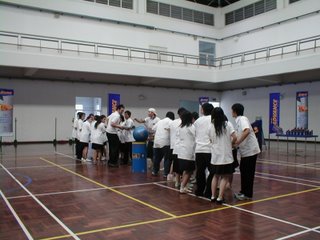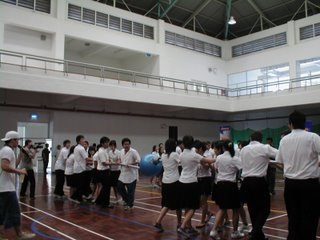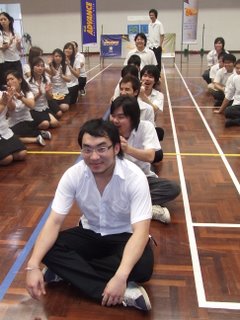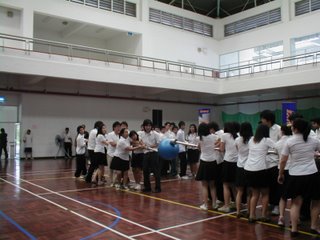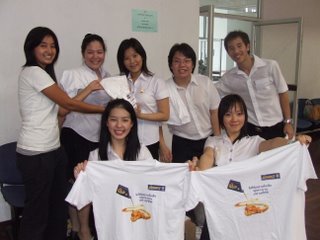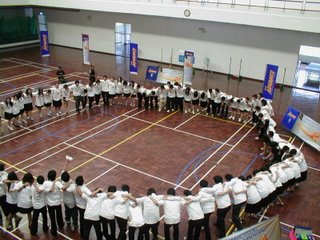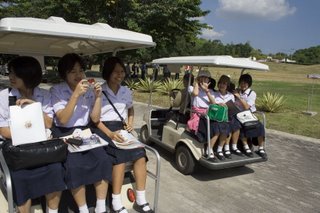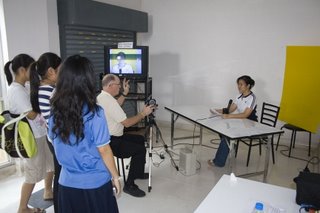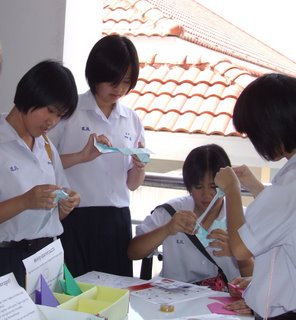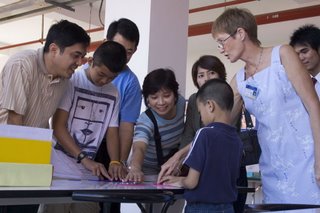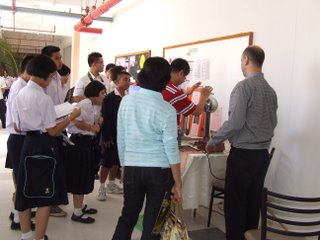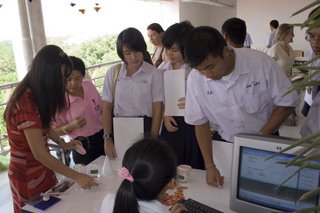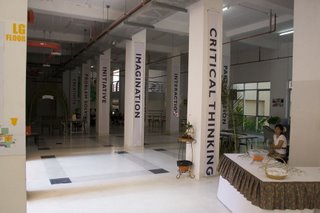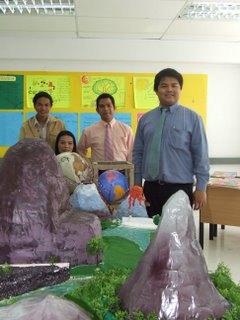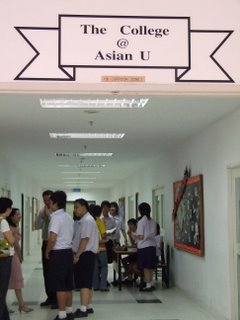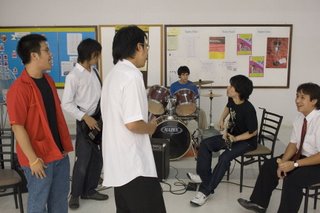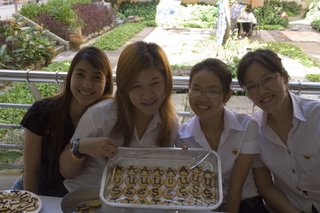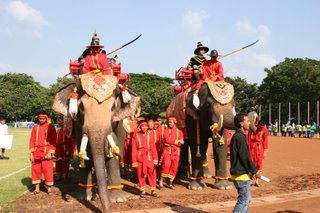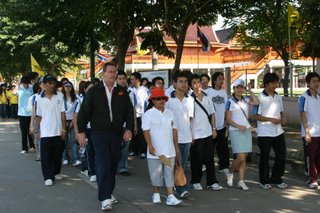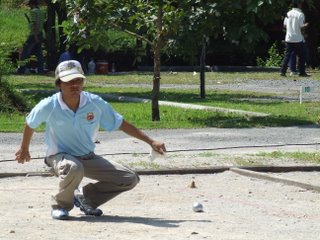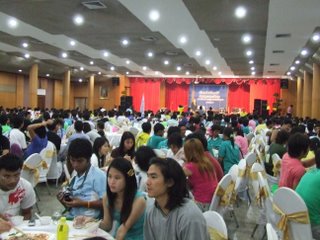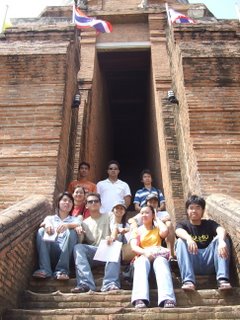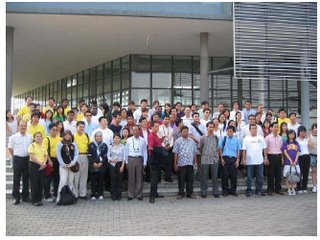 Visiting Dongguan University of Technology
Visiting Dongguan University of Technology
One of last year’s Asian University graduates, Mr. Prawit Tangkabutra (Wit) recently attended the China-ASEAN Youth Camp 2006, and the following is a brief account of some of his experiences. Wit was one of eight Thais chosen to represent his country along with people from ten other ASEAN countries. They left Bangkok on 23 October, flying to Guangzhou, then travelled to Nanning. On 28th they flew to Fuzhou, and finally back to Bangkok on 30 October.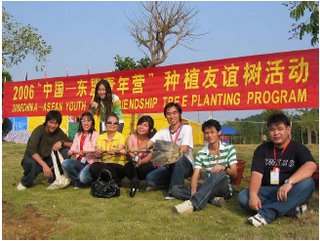
Tree Planting at Nanning Park
This is the fifteenth annual China-ASEAN Youth camp. The camp aims to promote mutual understanding and friendship among young people, deepen the co-operation in the field of Youth Affairs in China and ASEAN countries so as to infuse China-Asean activities with new energy.
Wit explains:
“I will tell you about my new experience there:
New Knowledge from Cultural Exchange
During the stay together of the ASEAN delegates and Chinese volunteers in Guangzhou, Nanning, and Fuzhou City for 8 days, the different cultures and traditions were shared by each delegate.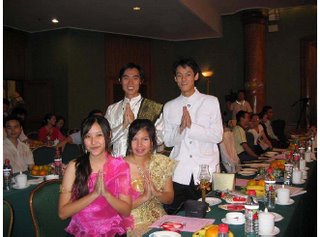
The Thai delegation (Wit with green sash) at Cultural evening in Nanning.
For instance, Thai delegates taught Chinese volunteers to say, 'Hello' or 'Sawasdee' in Thai, and showed how Thai people 'Wai' or saluting other people. Some basic Chinese words, such as 'Ni Hao (Hello)', 'Chea Chea (Thank you)', and 'Jai Jian (Good bye)' were also taught by Chinese volunteers to ASEAN delegates.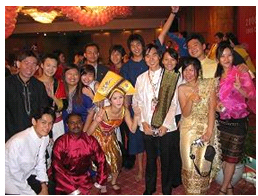
The Thai and Singaporean delegations in Nanning (Wit with green sash)
Moreover, the very interesting and different ways of saying some basic words for greeting were taught by each ASEAN country. The interesting culture that always shared on every meal during the stay in China of ASEAN countries was the different way how the say the word, 'Cheers'. Singapore delegates use the words, 'Ya Xing' as same as 'Cheers' in English. They would normally say the word, 'Ya' for as long as possible together with the holding of the glass of whisky as high as possible and then say, 'Xing' shortly. Quite similarly, the word, 'Chai Yo' is always used by Thai people.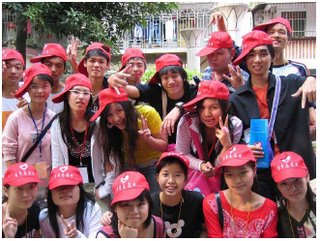
Visiting Nanghua Youth Civilisation Community
Chinese traditional whisky drinking was also taught by Chinese delegates during the stay in China of ASEAN delegates. Chinese people use the word, 'Kan Pei' in order to ask others to drink all of the whisky in the glass. When they say, 'Kan Pei' that means everyone have to say, 'Kan Pei' back to them, and then drink all of the whisky in the glass. After drinking, everyone have to show their glass for making sure that they already drank all of whisky.
Another interesting knowledge is about the symbol of Nanning City, 'Ball'. The Nanning ball represents as the love between people. The throwing of the ball and receiving the ball are meaningful. The one who throw the ball is the one who want to have love. Oppositely, the one who receive the ball is the one who accept the love. The interesting of the Nanning ball is about how to make it. All of the Nanning symbol balls are made by the retired women of the Nanning society. The Nanning government also supports the making of the ball in order to help those retired people to earn some special incomes. Thus, the ball is become to be the symbol of the city.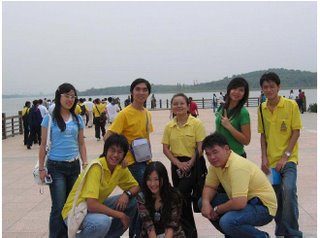
At Song Shanhu Lake
As a result, it was not only the learning and receiving other different cultures by watching their showing of culture performance, but it can also learned by living together.
Oh! I got a lot of friends there. All of them are from other ASEAN countries. Now, we still keep in contact.”
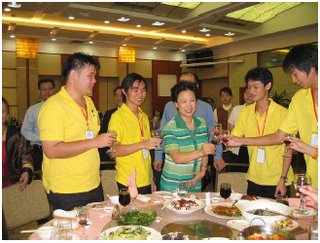
Toasting friends: the lady in green is the leader of the Guangxi Autonomous Region.
Asian University is very proud of Prawit and his achievements. He was awarded a first class honours BBA degree this year after four years of study at Asian U preceded by a preparatory year in the Foundation programme.
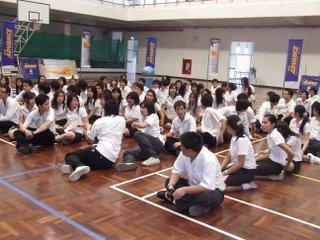 Waiting to play the game
Waiting to play the game